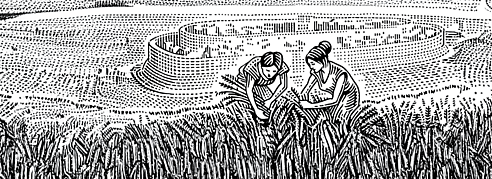The invention of agriculture, often called the First Agricultural Revolution or the Neolithic Revolution, was a decisive turning point in our species’ history. It dramatically changed the way that we live. By producing a surplus of food that could be stored for difficult times ahead or traded for other goods, agriculture ultimately allowed for far greater prosperity than hunting and gathering ever could.
Why did our ancestors turn their backs on a nomadic way of life that was thousands of years old? Why did people begin to live in farming communities about 10,000 years ago? This article answers those questions by discussing the history of Jericho—the world’s oldest city and possibly the birthplace of agriculture. In the article, author Chelsea Follett writes about the domestication of plants in the Fertile Crescent and the momentous changes brought on by it. She writes, “The invention of agriculture, often called the First Agricultural Revolution or the Neolithic Revolution, was a decisive turning point in our species’ history. It dramatically changed the way that we live. By producing a surplus of food that could be stored for difficult times ahead or traded for other goods, agriculture ultimately allowed for far greater prosperity than hunting and gathering ever could.”

